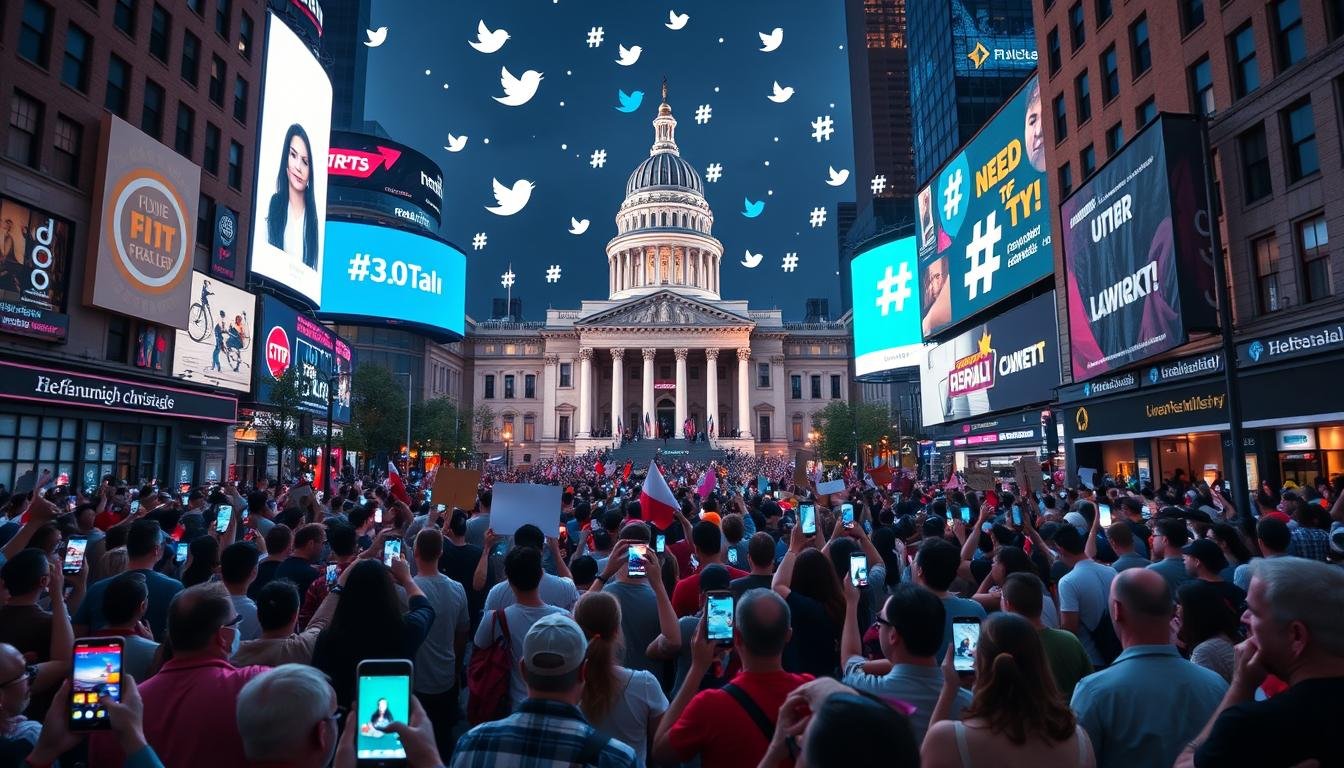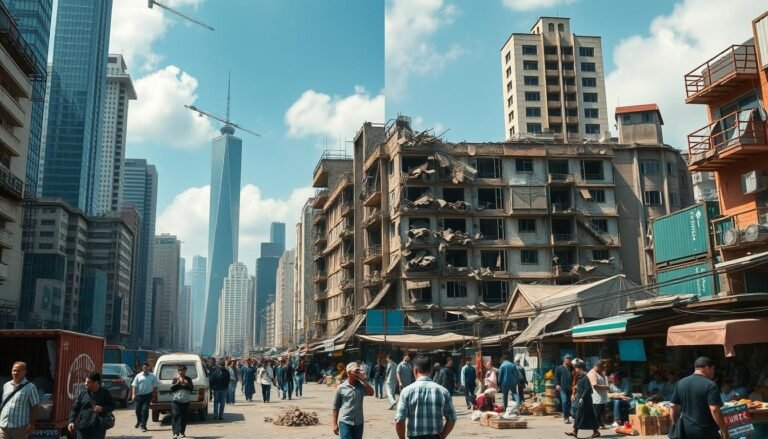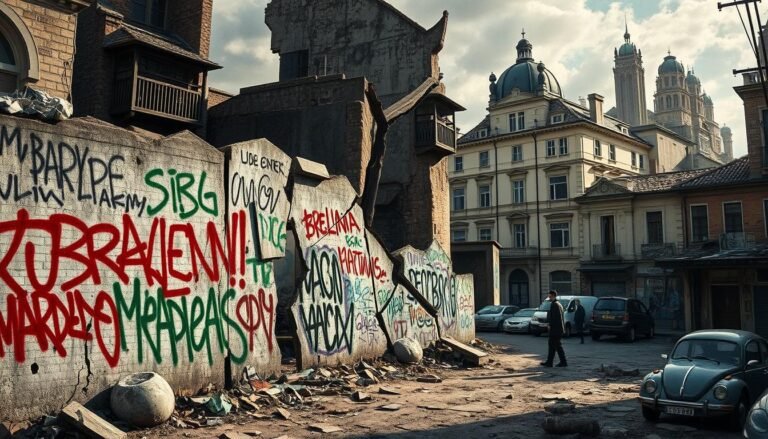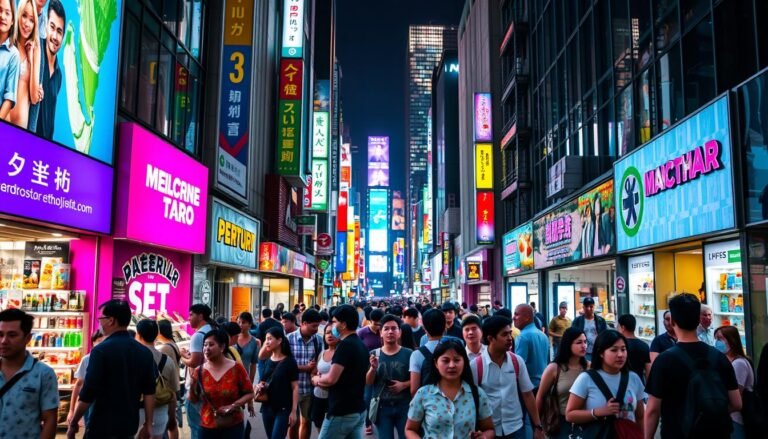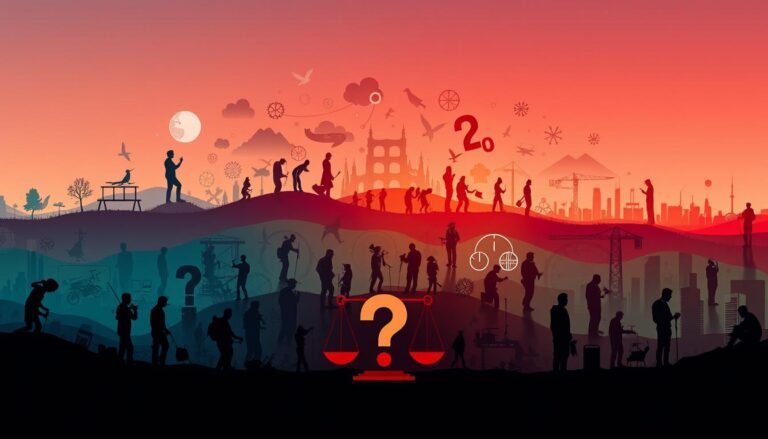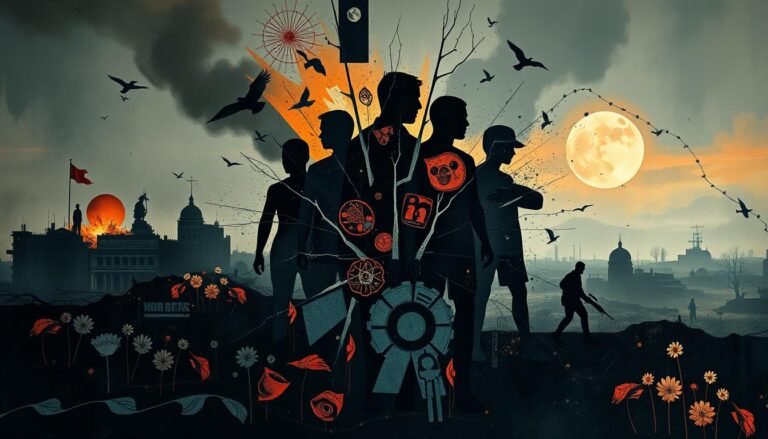The Impact of Social Media on Political Activism
Has the digital revolution made politics more accessible to everyone? Today, a single tweet can start a global movement. Social media has changed how we engage in politics, making us ask: Is this the start of a new era of social justice, or just the beginning of online protests?
Social media’s power to bring people together is huge. The Women’s March in 2017, for example, brought 4.6 million people to the streets of the USA, thanks to social media. In 2020, the Black Lives Matter movement saw protests in over 2,000 US cities, reaching 15 to 26 million people. These events show how online efforts can lead to real change.
Across the globe, the effects are huge too. The UK’s Brexit vote in 2016 had a 72.2% turnout, with social media playing a big part. In Brazil, the “Fora Temer” protests in 2016 drew millions, organized online. The Arab Spring, especially the Tahrir Square protests in Egypt, showed how social media can spark revolutions.
But, online activism has its downsides. While 57% of people in advanced economies see social media as a positive for democracy, 84% think it makes people more open to false information. This shows the complex role of social media in politics and civic engagement.
Key Takeaways
- Social media has enabled massive political mobilizations worldwide
- Digital campaigns can lead to significant offline actions and protests
- Online platforms have lowered barriers to political participation
- Social media activism faces challenges like misinformation and echo chambers
- Global networking through social media enhances cross-border activist collaboration
- Marginalized voices find amplification through social media platforms
The Rise of Digital Activism
Social media has changed political activism, starting a new era of digital engagement. This change has changed how people join causes and push for change.
Transforming Traditional Activism
Digital platforms have made activism reach farther and have a bigger impact. A study found that 34% of social media users have joined online groups for specific issues. This online participation means more people can get involved and share information quickly.
Hashtag Movements and Viral Campaigns
Hashtags have become key for spreading awareness. The #BlackLivesMatter hashtag was used nearly 30 million times on Twitter from 2013 to 2018. Campaigns like the ALS Ice Bucket Challenge raised $115 million, showing social media’s power to create change.
Online Petitions and Crowdfunding
It’s now easier for people to support causes with online petitions and crowdfunding. 26% of social media users have urged others to act on these platforms. This ease has led to successful campaigns like the Human Rights Campaign’s #LoveWins, which got over 97 million views on Facebook.
| Activism Type | Percentage of Users |
|---|---|
| Issue-based group participation | 34% |
| Encouraging others to act | 26% |
| Supporting Black Lives Matter | 24% |
| Finding like-minded individuals | 40% |
Digital activism has given diverse communities a way to speak out and demand change. Black social media users, especially those under 50, have been very active, with 61% supporting Black Lives Matter. This shows how social media helps amplify voices and support social justice movements.
Social Media as a Tool for Political Mobilization
Social media has changed how we get involved in politics. These platforms let people join political actions like never before. A study found that people influenced by political messages on social networks were four times more likely to vote.
Look at the impact of social media on recent global movements:
- The Women’s March in the USA (2017): 4.6 million participants nationwide
- Black Lives Matter protests (2020): 15-26 million participants across 2,000+ cities
- #MeToo movement (2017): Millions of posts and discussions globally
- Extinction Rebellion protests (2019): 1,100+ arrests and 1,800+ events worldwide
Platforms like Facebook, Twitter, and WeChat have changed political engagement. They let people communicate across the world, leading to new ways of participating in politics.
| Platform | Notable Feature | Impact on Political Mobilization |
|---|---|---|
| Owns 4 of 7 most popular social media platforms | Wide reach for political campaigns and movements | |
| Real-time communication | Rapid spread of political information and hashtag movements | |
| Comprehensive ecosystem | Effective in “grabbing, holding, and processing human attention” |
Social media has given citizens a powerful tool for political action. But, it’s important to remember its two sides. It can be used for good civic actions or to spread false information. This shows the complex role of social media in today’s politics.
The Power of Information Sharing and Awareness
Social media has changed how we share and get information. It’s a key tool for spreading the word about big issues and events worldwide.
Breaking News and Citizen Journalism
Citizen journalism is big in today’s world. Now, people can report news right as it happens, often before traditional news outlets. This has changed how we see breaking news.
Exposing Human Rights Violations
Social media is vital for highlighting human rights issues. It gives a voice to those who might not be heard otherwise. A big 64% of Americans think social media helps underrepresented groups share their stories.
Fact-Checking and Debunking Misinformation
While social media spreads info fast, it also spreads false info quickly. Fact-checking is now key in the digital world. Many groups work hard to correct wrong claims and teach people about media literacy.
| Aspect | Percentage |
|---|---|
| Americans believing social media raises public awareness | 80% |
| Americans seeing social media as effective for social movements | 77% |
| Americans thinking social media influences policy decisions | 63% |
| Americans believing social media highlights important issues | 65% |
But, there are still worries. 79% of Americans think social media takes people away from what really matters. This shows we need to be careful and critical when using digital platforms for info and activism.
The Impact of Social Media on Political Activism
Social media has changed how we fight for our rights, making it easier to join causes online. It lets movements spread fast, crossing borders easily. Groups like the Women’s March and Black Lives Matter have reached millions thanks to social media.
The impact of social media on activism is huge. In 2017, the Women’s March in the USA had about 4.6 million people. The Black Lives Matter protests in 2020 reached over 2,000 cities, affecting 15 to 26 million people. These numbers show how big of a role digital activism plays.
Across the world, social media has helped movements grow. The #MeToo campaign got millions of posts, and Extinction Rebellion had over 1,800 protests. In Japan, the “KuToo” movement challenged dress codes, showing how social media can change cultural norms.
| Movement | Year | Estimated Participation |
|---|---|---|
| Women’s March (USA) | 2017 | 4.6 million |
| Black Lives Matter (USA) | 2020 | 15-26 million |
| Extinction Rebellion (Global) | 2019 | 1,800+ protests |
Social media affects different people and places in different ways. Young adults are more likely to use it for activism. The effects also vary between countries with more freedom and those with less. This changing scene is shaping how we talk about politics and get involved in our communities.
Challenges of Digital Activism
Digital activism has many hurdles in today’s online world. Social media changed how we connect with political and social issues. But, it also has its downsides.
Slacktivism and Performative Activism
Slacktivism is a big challenge. It means doing actions that make you feel like you’re helping, but you’re not really making a difference. Just sharing a post or changing your profile picture might not lead to real change.
Echo Chambers and Filter Bubbles
Social media algorithms create echo chambers. These make users see mostly content that matches their beliefs. This limits exposure to different views and can make biases stronger.
For example, during the Indian Farmers’ Protest, the hashtag #FarmersProtests got popular but mostly in supportive groups.
Online Harassment and Trolling
Online harassment is a big problem for digital activism. Trolls and cyberbullies can stop people from joining in and silence important voices. A study showed that 69% of Americans think social media has made political talks less civil.
The #DalitLivesMatter campaign had trouble getting noticed because of these issues. Despite its chance to go global, it found it hard to stand out and overcome digital activism challenges.
Social media helped spread messages like the Indian Farmers’ Protest, leading to policy changes. But, it’s clear digital activism faces big hurdles. Overcoming these is crucial to using online platforms for social change.
Social Media’s Role in Global Protest Movements
Social media has changed how we protest, making it easier to organize and spread messages worldwide. Sites like Facebook and Twitter let activists work together across borders. They help share their messages with people all over the globe.
The impact of social media on protests is huge. The Women’s March in 2017 had 4.6 million people in the U.S. The Black Lives Matter movement in 2020 had protests in over 2,000 cities, with 15 to 26 million people involved. These movements grew thanks to hashtags and online campaigns.
Social media has changed activism. The Arab Spring in 2011 showed how it can make organizing easier and spread awareness fast. In Egypt, protests in Tahrir Square led to big political changes, all thanks to social media.
It has also given a voice to those who were quiet before. The #EndSARS movement in Nigeria in 2020 showed how social media can make local issues global. The farmers’ protests in India have also gotten attention worldwide through social media.
“Social media has become an indispensable tool for organizing protests and demonstrations, allowing organizers to reach a wider audience and coordinate efforts across different geographical locations.”
But, social media isn’t perfect. It can spread false information, which is a big problem. We need more fact-checking and media literacy. As protests keep evolving, social media will keep playing a big part in them.
The Influence of Social Media on Election Campaigns
Social media has changed how politicians reach out to voters. It offers new ways for political micro-targeting and engaging with voters. But, it also spreads election misinformation.
Micro-targeting and Personalized Political Ads
Now, political campaigns use data to send messages to certain voters. In the 2018 Texas Senate race, candidates spent $93 million on social media ads and events. This method targets voters well but worries about privacy.
Voter Engagement and Turnout
Social media helps increase voter turnout. A 2012 study showed that a “I voted” button on Facebook helped more people vote. Politicians like Pete Buttigieg and Elizabeth Warren use social media to talk to supporters, sharing personal stories and thanking for donations.
Spread of Political Misinformation
Social media boosts political engagement but also spreads election misinformation. The 2016 U.S. presidential election showed this, with foreign interference on social platforms. A 2020 poll found 55% of U.S. social media users felt overwhelmed by political posts, more than in 2016.
| Year | Social Media Impact |
|---|---|
| 2008 | 74% of internet users sought election news online |
| 2016 | Foreign interference attempts via social media |
| 2020 | 55% of users felt “worn out” by political posts |
Social media is changing politics. We must tackle misinformation while using it to boost voter engagement and political participation.
Government Responses to Social Media Activism
Governments around the world are dealing with the impact of social media on political actions. They are looking at ways to control the digital space. This includes more rules for social media and tougher laws on data privacy. In some places, blocking internet access is used to quiet online critics.
A study in 2020 by Kendall-Taylor, Frantz, and Wright looked into how tech helps autocrats. They saw that strong regimes use advanced tech to watch and manage what people do online. For instance, China uses a system called the “Great Firewall” to keep an eye on the internet, as noted by Fuchs in 2013.
In democratic countries, there are also big issues. The U.S. is looking closely at social media, wanting better rules for data privacy. In Africa, where more people are getting online, governments are trying to balance free speech with worries about false information. Nigeria has 103 million internet users, making up 45.5% of its population. Morocco has an even higher rate of 91%.
As social media changes how we talk politics, figuring out how to regulate it is hard. Governments have to walk a thin line. They need to protect people while also keeping the internet free in a world that’s always changing.
Source Links
- The Impact of Social Media on Political Mobilization and Activism
- Social Media Impact: How Social Media Sites Affect Society
- 2. Americans’ views of and experiences with activism on social media
- Digital Activism | Office of Diversity, Equity, and Inclusion
- Social Media Effects: Hijacking Democracy and Civility in Civic Engagement
- The Political Effects of Social Media Platforms on Different Regime Types – Texas National Security Review
- Americans think social media can help build movements, but can also be a distraction
- Social Media Seen as Mostly Good for Democracy Across Many Nations, But U.S. is a Major Outlier
- Social media use in politics
- Is Political Activism on Social Media an initiator of Psychological Stress?
- Navigating Social Justice Activism in the Age of Social Media
- The Impact of Digital Activism on Post-Cold War Politics | OpenMind
- Is digital activism effective? | University of Sussex
- The Power of Social Media in Shaping Politics and Social Movements
- Social Media’s Influence on Elections
- Social media influencers may affect more than voter opinions | Penn State University
- How Social Media Is Shaping Political Campaigns
- The digital repression of social movements, protest, and activism: A synthetic review
- Frontiers | The new democratisation: social media impact on the political process in Sub-Saharan Africa

